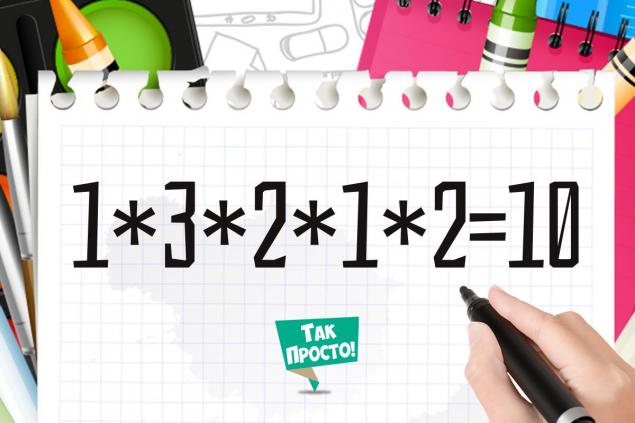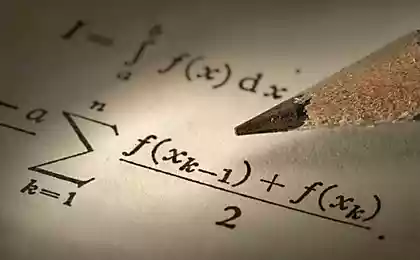185
Show a class by solving a clever mathematical example
The order of performing actions in mathematics often becomes a real stumbling block. We studied it in elementary school and, in theory, we should remember it all our lives. But the theory, as Mephistopheles said, is dry. And who, in fact, is interested in examples where the order of action is scheduled in advance?

Another task from our collection. They only give you a set of numbers and a number to get. And what actions and in what order to perform, it is up to you. And then you can't calculate the answer, much less guess. After all, to solve it, you need to think creatively and analytically. And this helps us to successfully find a way out of the most difficult life situations.
The order of action in mathematics
Answers.
As you can see, our fun tasks help to spend time usefully. After all, ingenuity helps to search for unusual, interesting and simple solutions, achieving results not only in the game, but also in real life in the shortest possible way.

Another task from our collection. They only give you a set of numbers and a number to get. And what actions and in what order to perform, it is up to you. And then you can't calculate the answer, much less guess. After all, to solve it, you need to think creatively and analytically. And this helps us to successfully find a way out of the most difficult life situations.
The order of action in mathematics
- Let's start with simpler examples. Put in the record 1 * 3 * 2 * 1 * 2 = 10 instead of stars the signs of arithmetic actions, to get the correct equality. Try to find as many options as possible with and without brackets.

- You have four numbers: 5, 5, 5 and 1. By adding, subtracting, multiplying, dividing and bracketing, you get 24 from them using each of these numbers and only 1 time.

- Using numbers (1, 3, 4, 6), brackets and arithmetic operations (addition, subtraction, multiplication, division), get the number 24. Only these numbers and only these transactions are allowed. Each number can only be used once. Operations and brackets can be used any number of times.

Answers.
- As I said, there is a lot of room for creativity. I found only one solution without brackets: 1 + 3 x 2 + 1 + 2 = 10. And one with brackets: 1 x (3 + 2) x 1 x 2 = 10. But the solutions are probably much more. Try to find the missing ones!
- I offered this task to my friends. And before I give you the right answer, I'm going to tell you about some erroneous, as well as very clever, solutions. The most common answer is 5 x 5 – 1 = 24. There was another option: 5 + 5 + 5 + 5 + 5 - 1 = 24. The answer in both cases is, of course, 24. But what about the condition? It clearly states that you need to use each of the numbers and only 1 time!

An interesting solution outside of mathematics was offered by a barista girl. According to her, it is enough to drink 5 cups of coffee, then another 5 cups and another 5 cups in one day to get 24 hours of wakefulness. We do not recommend even trying to repeat it. After all, more than 300 milliliters of invigorating drink a day can harm your health. But the attempt to bring together mathematics, cooking and physiology deserves every respect.
Going back to mathematics, finding a solution to this example was very difficult. This is what I did. (5 - (1:5)) x 5 = 24. Can any of our readers find another option? - We've already solved two examples. There should be no problem with the latter. And again we are helped by the division by fraction: 6 / ( 1 - ( 3 / 4 ) ) = 24.

Peels
As you can see, our fun tasks help to spend time usefully. After all, ingenuity helps to search for unusual, interesting and simple solutions, achieving results not only in the game, but also in real life in the shortest possible way.
Angela Pearl shared a new astrological forecast of the war
Without garlic pressing festive cookies will not work, I had to borrow a neighbor good Soviet





























